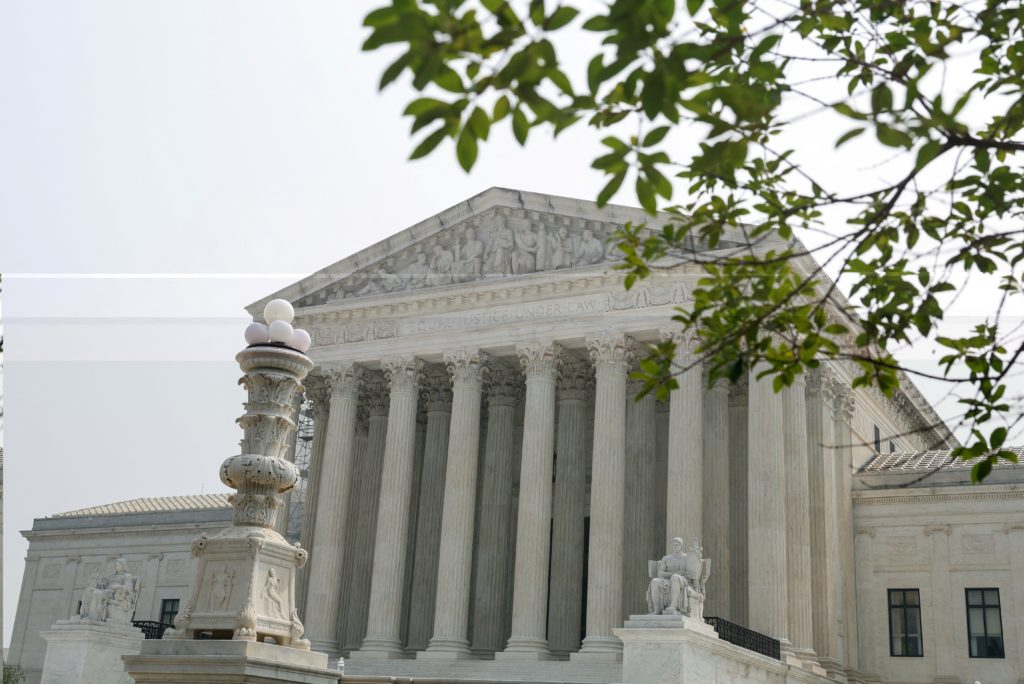The Supreme Court ruled June 29 that institutions of higher education can no longer take race into consideration for admission, a landmark decision overturning previous precedent supported by many Catholic universities and colleges.
Within higher education, affirmative action refers to admissions practices that purport to increase the number of students admitted from historically marginalized groups, such as Black and Hispanic students. Colleges and universities that take race into consideration have argued that doing so is only one factor in a broader admissions process, which also includes a student's grades, test scores and extracurricular activities.
Supporters of affirmative action policies argue they help to address the lasting impact of racism in American society. Opponents, however, say race-based admission policies harm students who should be judged on their merits as students alone, with some arguing that Asian American students were disproportionality rejected in favor of white, Black and Hispanic applicants.
Chief Justice John Roberts wrote the 6-3 majority opinion, arguing admissions programs at Harvard University and the University of North Carolina violated the Constitution's equal protection clause in a ruling dealing with affirmative action policies at those institutions.
"The Harvard and UNC admissions programs cannot be reconciled with the guarantees of the Equal Protection Clause," Roberts wrote. "Both programs lack sufficiently focused and measurable objectives warranting the use of race, unavoidably employ race in a negative manner, involve racial stereotyping, and lack meaningful end points. We have never permitted admissions programs to work in that way, and we will not do so today."
In a dissent, Justice Ketanji Brown Jackson argued her colleagues were "turning back the clock" by effectively ending affirmative action.
"With let-them-eat-cake obliviousness, today, the majority pulls the ripcord and announces 'colorblindness for all' by legal fiat," wrote Jackson, who is African American. She added, "But deeming race irrelevant in law does not make it so in life."
"History speaks," Jackson wrote.
"In some form, it can be heard forever," she added. "The race-based gaps that first developed centuries ago are echoes from the past that still exist today. By all accounts, they are still stark."
In June 29 remarks from the White House, President Joe Biden said, "Today, the court once again walked away from decades of precedent."
"The court has effectively ended affirmative action in college admissions, and I strongly -- strongly -- disagree with the court's decision," Biden said.
Biden, the nation's second Catholic president, claimed many Americans "wrongly believe" affirmative action allowed unqualified students to be admitted over qualified students.
"This is not how college admissions work," he said. "Rather colleges set out standards for admission, and every student has to meet those standards. Then, and only then, after first meeting the qualifications required by the school, do colleges look at other factors in addition to their grades, such as race."
In a tweet praising a concurring majority opinion by Justice Clarence Thomas, Sen. Marco Rubio, R-Fla., said the high court's decision "is the right one."
"Students should be judged on their merits, not the color of their skin," Rubio, who is Catholic, wrote.
In his opinion, Thomas, who is African American and Catholic, wrote, "While I am painfully aware of the social and economic ravages which have befallen my race and all who suffer discrimination, I hold out enduring hope that this country will live up to its principles so clearly enunciated in the Declaration of Independence and the Constitution of the United States: that all men are created equal, are equal citizens, and must be treated equally before the law."
In a statement, the Association of Catholic Colleges and Universities, which describes itself as the collective voice of U.S. Catholic higher education, said the high court's ruling is "more than disappointing as it ignores the more-than-apparent effects of continued racism in our society."
"In doing so, it undermines the work that higher education has voluntarily taken on for many decades to be a solution in a society that provides too few solutions for this social evil," the statement said.
The association said its members would follow Catholic social teaching and, within the bounds of the decision, "continue to create paths by which those in society who do not have opportunity find it at our institutions."
In a statement, Reynold Verret, president of Xavier University of Louisiana in New Orleans, the only historically Black and Catholic university in the U.S., said the likely result of the ruling "will be a decline in representation of under-represented students in many higher ed institutions."
"Throughout the history of this nation to this very day, equity of educational opportunity and access has not been afforded to all Americans," Verret said. "This impoverishes the nation in depriving her of the talent manifest in the minds of so many. Now is the moment to which we are called to imagine a way forward that assures equity and justice."
In a statement, Eduardo Peñalve, president of Seattle University, a Jesuit institution of higher education, said the university's "commitment to diversity is intrinsic to our mission."
"This understanding takes on added significance in light of today's disappointing U.S. Supreme Court ruling on affirmative action, which will likely hinder the ability of many universities to achieve a diverse student body," Peñalve said. He explained the university will "continue to use every tool consistent with the law to create and sustain a diverse and inclusive academic community."

